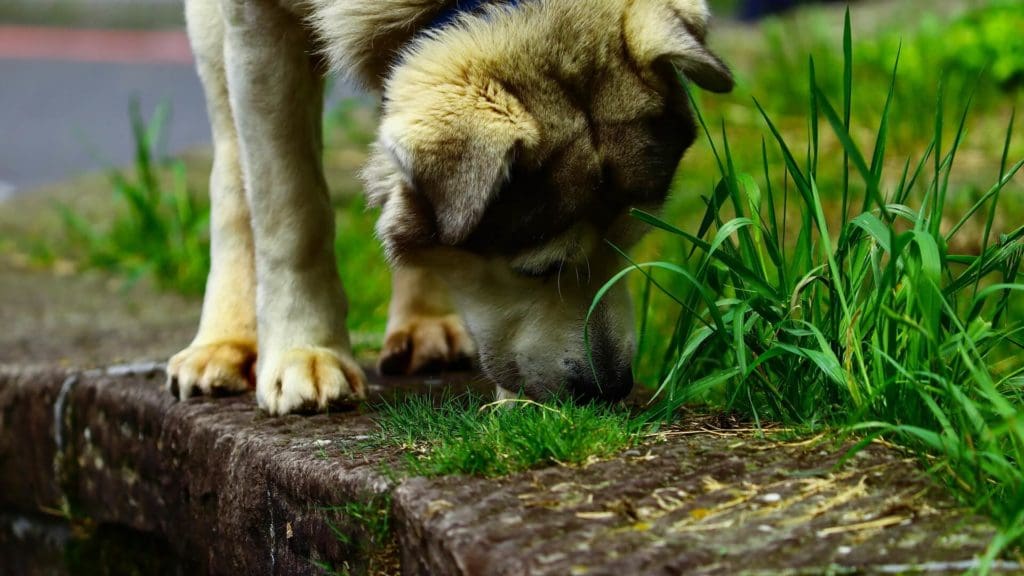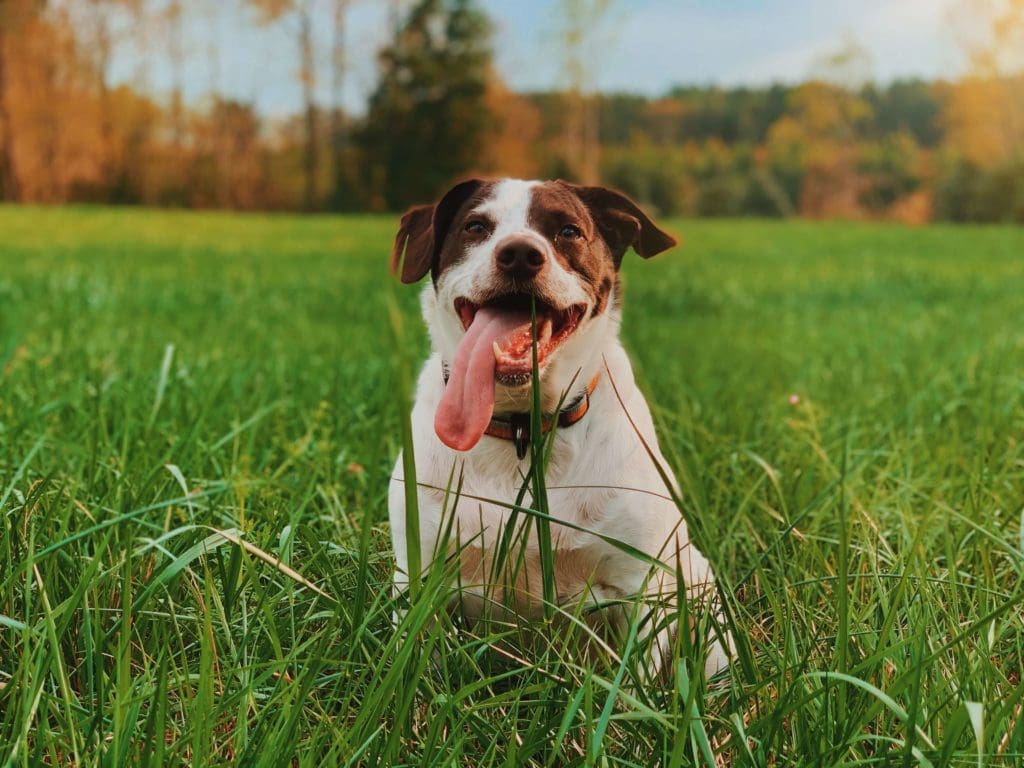If you’ve caught your dog nibbling on your lawn, your first instinct may be to assume that he has an upset stomach.
While many people are under the impression that dogs eat grass to soothe their stomachs or induce vomiting, the precise explanation remains a mystery. Studies reveal that only 10% of dogs who are observed grazing are sick beforehand, and less than 25% vomit after consuming grass. More often than not, it seems to have no connection to nausea at all.
Though the jury is still out on this puzzling canine behavior, here are some of the leading theories.

Despite our best efforts to feed our pups
a balanced diet, they may still be attracted to the supplementary fiber that grass provides.
Grass contains an indigestible component called cellulose, which allows it to pass through the digestive system without breaking down. Dogs who have overeaten or gotten into food that wasn’t meant for them may use grass to bulk up their stool and make bowel movements more comfortable.
Emotional eating isn’t just for humans. Dogs who are stressed, bored, or anxious may turn to chewing grass as a way to distract themselves. This may be especially true for puppies, who need a great deal of stimulation and attention.
If you suspect that your dog is noshing on your lawn because of boredom or nerves, offer a favorite toy or a healthy snack instead. Ensuring that your pup is getting enough exercise and interaction can help reduce the urge to eat grass.

Though it isn’t believed to have been a major part of their diet, our dogs’ wild ancestors regularly ingested grass.
Wolves have been observed grazing, and they also take in a great deal of grass through the digestive systems of their prey. Some experts believe that modern dogs may miss this second-hand grass in their everyday food.
While high-quality dog food should meet your dog’s nutritional needs, it stands to reason that our dogs may have developed a taste for greens.
Pet parents can’t discount the possibility that their dog may nibble on grass simply because it tastes good.
Thirsty pups may be attracted to the dew or rainwater that collects on your lawn. Offering plenty of clean water and healthy treats can help make grass less appealing to your dog.
While chewing on grass isn’t harmful in and of itself, it’s a good idea to discourage this behavior as much as possible. Grass may be treated with chemicals and pesticides that are toxic to pets. What’s more, it can be a vehicle for harmful microorganisms like giardia, hookworms, and roundworms.
Dogs who eat grass obsessively may be experiencing behavioral problems or nutritional deficiencies. Talk to your veterinarian about any concerning behavior to keep your pup (and your lawn) healthy and thriving.